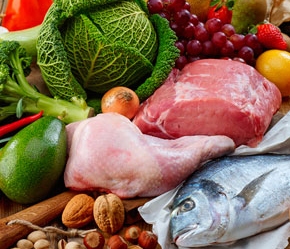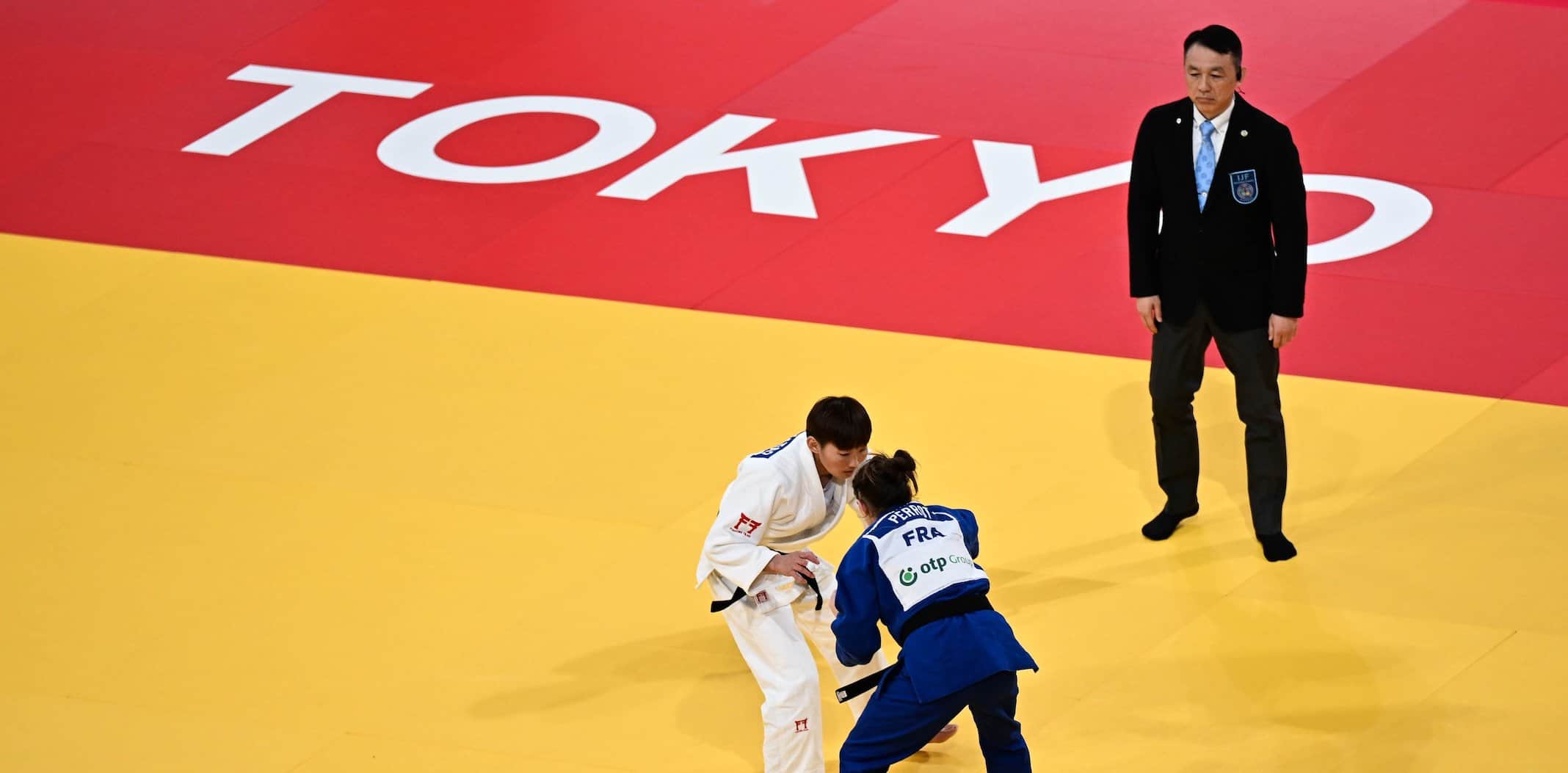In this blog British Judo Performance Team Nutritionist Louise Bloor talks about how and when eating the right foods can help prepare and repair your body for judo.
Carbs are King
How much carbohydrate you need for judo depends on the frequency and intensity of your training. As you utilise energy it is essential you replenish these stores, especially if you are training twice a day like our athletes at the Centre of Excellence.
Measuring carbohydrate intake in grams per kg of body weight is more likely to be closely related to the muscles’ absolute need for fuel than using percentages. For example, some of our athletes can train off quite a moderate carbohydrate intake of 4-5g/kg/body weight, which for a 70kg player would be in the ranges of 280g-350g of carbohydrate per day. This will vary depending on the athletes training phase, weight making, growth and development. The table below gives examples of 50g servings.
As carbohydrates are the key fuel source for the body it is important to place them around training. Full energy stores and high blood glucose levels enables judokas to sustain the intensity and quality of their training, in addition to good cognitive function and decision making. Entering an intense, technical session with low energy stores through poor meal timings, choices or crashing to make weight leaves players open to poor training performance, frustration as well as illness and injury risks.
2-3 Hours Before Training/Competition | 30-60 Minutes Before Training/Competition |
| Low GI Carbs to provide a steady sustained release of energy | High GI carbs to provide a fast supply of energy on top of stores |
| E.g. Museli with 180ml semi-skimmed milk + yougurt, Chicken Pasta Bake, Meat/Fish Sandwich or wrap, Couscous with Chicken or Fish, Jacket Potato with Tuna | E.g. Cornflakes, Meat/Fish Sandwich on White Bread, Ripened Banana, Sports Drinks, Sports Gels |
50g Carbohydrate Servings |
| Food | ML/G | Serving |
| Gatorade | 833 | 2 Bottles |
| Weetabix | 68.1 | 3-4 Biscuits |
| Rice – white (cooked) | 188 | 4 Tablespoons |
| White Bread | 179 | 4 Slices |
| Nutri-Grain Bars | 100 | 2 Bars |
| Rice – brown (cooked) | 227 | 4 Tablespoons |
| Raisins | 68 | 3 Tablespoons |
| Sweet corn | 222 | 10 Tablespoons |
| Rice Pudding (low fat) | 341 | 1 Tin |
| Wholemeal Bread | 136 | 3-4 Slices |
| Pasta – white (cooked) | 187 | 8 Tablespoons |
| Bananas, ripe | 240 | 2 Large |
| Pasta – brown (cooked) | 220 | 8 Tablespoons |
| Special K | 71 | 1 Large bowl |
| Quinoa | 300 | 4 Tablespoons |
| Ribena (diluted) | 387 | 2 Glasses |
| Red Kidney Beans | 313 | 10 Tablespoons |
| Jam | 75 | 9 Level Teaspoons |
| Fruit Juice | 480 | 1 Pint |
| All Bran | 71 | 1 Large Bowl |
| Grapes | 316 | 60 |
| Boiled Potato | 278 | 5 Egg Sized |
| Sweet Potato | 300 | 1 Medium |
| Spaghetti | 187 | 80g |
| Greek yoghurt with honey | 312 | 2 Muller Light |
| Chickpeas | 250 | 10 Tablespoons |
| Strawberry yoghurt | 625 | 1 1/2 Large Onken |
| Milk – Semi skimmed | 961 | 2 Pints |
Resting up
Protein is essential to build and repair new tissue. Daily protein intake is also recommended in grams per kg of body weight. General guidelines for power athletes is 1.2-1.7g/kg/bw. At the British Judo Centre of Excellence I encourage our athletes to have between 1.6-1.8g/kg/bw as there can be a lot of muscle damage and soreness from all the throwing and being thrown. During periods of injury and making weight this is increased to 2.0-2.2g/kg/bw to help maintain lean mass and strength which can be lost through immobilisation or energy deficit.
Within 20 minutes of finishing training, whether this be on the mat or in the gym, you should aim to maximise muscle growth and repair by including protein in all recovery snacks. Following judo/technical session aim to have at least 10-15g protein and 20g protein after a session in the gym.
Glycogen stores should also be replaced, but how much carbohydrates you have depends on how hard and long the session has been. For lighter sessions <30g should be sufficient, but for more intense ones >50g.
Protein |
| Food | Grams | Serving | Protein (g) |
| Beef Steak | 85 | Steak | 36 |
| Prawns | 200 | Pack | 35 |
| Haddock | 150 | Fillet | 28 |
| Chicken | 125 | Large Breast | 28 |
| Cod | 140 | Fillet | 26 |
| Mince Beef | 125 | Serving | 25 |
| Salmon | 110 | Fillet | 22 |
| FAGE Yoghurt | 170 | 1 Pot | 14 |
| Pasta | 70 | Dry | 12 |
| Mixed Nuts | 50 | Packet | 11 |
| Yazoo Milkshakes | 300 | 1 Bottle | 10 |
| Peanut Butter | 15 | 1 Teaspoon | 4 |
This blog has been writing based on the nutritional requirements of full-time athletes based at the British Judo Centre of Excellence. You should always seek the advice of a doctor if you are considering any radical changes to your diet.


























